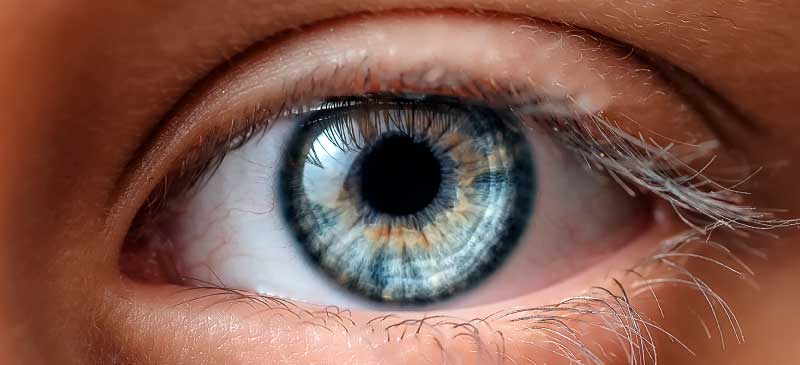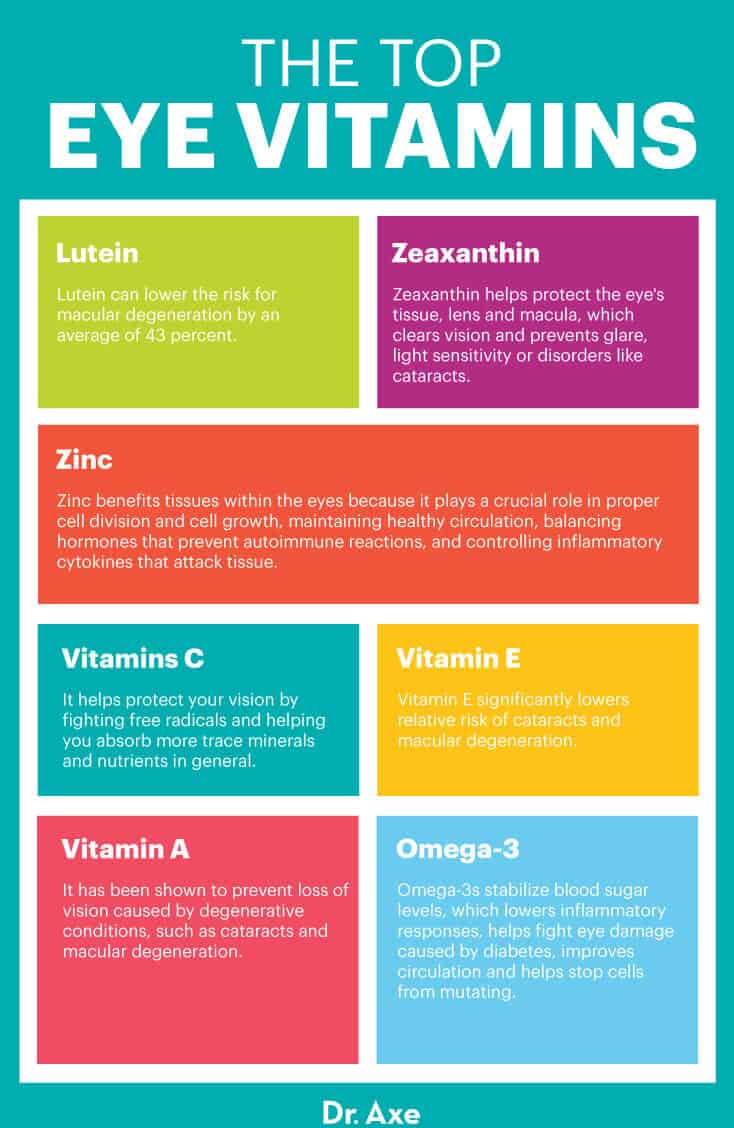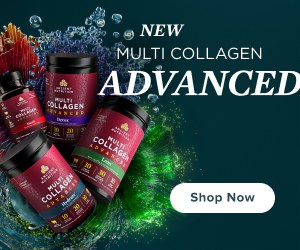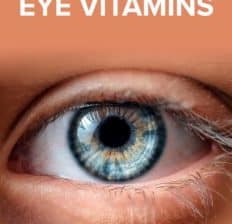This Dr. Axe content is medically reviewed or fact checked to ensure factually accurate information.
With strict editorial sourcing guidelines, we only link to academic research institutions, reputable media sites and, when research is available, medically peer-reviewed studies. Note that the numbers in parentheses (1, 2, etc.) are clickable links to these studies.
The information in our articles is NOT intended to replace a one-on-one relationship with a qualified health care professional and is not intended as medical advice.
This article is based on scientific evidence, written by experts and fact checked by our trained editorial staff. Note that the numbers in parentheses (1, 2, etc.) are clickable links to medically peer-reviewed studies.
Our team includes licensed nutritionists and dietitians, certified health education specialists, as well as certified strength and conditioning specialists, personal trainers and corrective exercise specialists. Our team aims to be not only thorough with its research, but also objective and unbiased.
The information in our articles is NOT intended to replace a one-on-one relationship with a qualified health care professional and is not intended as medical advice.
Eye Vitamins and Foods: Are You Getting Enough?
June 30, 2023

Diminishing eyesight might seem like an unavoidable annoyance as you get older, but with the right diet you can hold on to accurate vision for longer than you might think. For example, carrots and leafy green veggies are considered some of the best foods for your eyes because they provide antioxidants and eye vitamins and minerals, including vitamins C, E and A and zinc, along with carotenoids like lutein and zeaxanthin. These protect the eye’s macula, lens and cornea while also lowering free radical damage and inflammation, which destroy tissue in the eyes.
As someone gets older, the eyes become more susceptible to damage caused by an unhealthy lifestyle and overactive immune system, which results in the body becoming flooded with defense cells and hormones that damage parts of the eyes.
How can eye vitamins keep your eyes young and sharp into older age? The Age-Related Eye Disease Study, a clinical trial concluded in 2001 that was sponsored by the National Eye Institute, found that a poor diet was a major risk factor for age-related macular degeneration and cataracts.
Obtaining plenty vitamin C, vitamin E, beta-carotene and zinc were all found to significantly lower people’s risk, making them great natural treatments for macular degeneration and cataracts.
It’s been estimated that more than half of adults suffer from some sort of cataracts by the time they’re 80 years old. Anti-inflammatory foods and those high in antioxidants have positive and preventative effects against eye-related disorders besides macular degeneration and cataracts too, including glaucoma, retinal nerve damage, loss of eye strength and partial vision loss.
Diabetic retinopathy is another serious concern that can be managed with a healthy diet, and it’s considered a leading cause of blindness among working-age people.
Many eye vitamins effectively manage blood sugar levels and hormonal responses, plus absorb UV light and other rays within the spectrum that damage our eyes, such as blue light that’s omitted from technological devices like your phone, laptop or tablet.
By lowering inflammation and the amount of blue light or UV light that’s able to enter the eyes, antioxidants help preserve healthy cells and prevent disorders.
What are the best eye vitamins, and how, specifically, do they impact eye health? Let’s find out.
Top 7 Eye Vitamins
1. Lutein
An antioxidant that’s been nicknamed “the eye vitamin,” lutein protects both the eyes and skin. This anti-inflammatory, carotenoid phytonutrient is found in foods like leafy green vegetables, egg yolks, citrus fruits and orange veggies. Once consumed, it’s transported around the body, especially to the parts of the eyes called the macula and the lens.
Researchers at Harvard University have found that supplementing with lutein can lower the risk for macular degeneration by 40 percent, proving “the eye vitamin” lives up to its name.
2. Zeaxanthin
There are more than 600 different types of carotenoids found in nature, but only about 20 make their way into the eyes. Lutein and zeaxanthin are the most important since they’re delivered in the highest quantities into the eyes’ delicate macula.
Just like lutein, zeaxanthin helps protect the eye’s tissue, lens and macula, which clears vision and prevents glare, light sensitivity or disorders like cataracts.
3. Vitamin C
The antioxidant vitamin C does more than just fight colds — it also helps protect your vision by fighting free radicals and helping you absorb more trace minerals and nutrients in general. Studies show many Americans are deficient in this crucial vitamin that helps repair damaged tissue, slows down inflammatory responses, prevents cellular mutations and much more.
One long-term study also found that among 3,684 adults (ages 43 to 86), cataracts was 60 percent less common among people who reported using multivitamins with both vitamin E or vitamin C.
4. Vitamin E
Vitamin E, vitamin A and vitamin C work together to keep cells and tissue strong and protected from the effects of inflammation. These fat-soluble antioxidants decrease the risk of age-related macular degeneration — plus consuming plenty vitamin E and vitamin A together has been shown to improve healing and vision in people undergoing laser eye surgery.
Certain studies have found people have about a 25 percent lower risk of developing advanced stages of macular degeneration when consuming at least 400 international units of vitamin E daily, especially when taken with vitamin A (as beta-carotene), vitamin C and zinc. One 2008 study involving 35,000 adults found those with the highest levels of lutein and vitamin E had a significantly lower relative risk of cataracts than those with lower intakes.
5. Zinc
Studies have found that zinc in combination with other vitamins helps protect the retina and lower risk for macular degeneration. Zinc is one of the most important nutrients for helping with nutrient absorption (it’s involved in over 100 metabolic processes) and allowing for proper waste elimination, which fights inflammation and cellular damage.
Zinc benefits tissues within the eyes because it plays a crucial role in proper cell division and cell growth, maintaining healthy circulation, balancing hormones that prevent autoimmune reactions, and controlling inflammatory cytokines that attack tissue. The human body does not synthesize the zinc it needs, so we need to obtain enough from sources like fish, grass-fed meat, organ meats and nuts.
6. Vitamin A (Beta-Carotene)
According to a report by the Journal of the American Medical Association of Ophthalmology, we need to obtain adequate vitamin A to prevent xerophthalmia and night blindness, particularly if we’re low in other key nutrients. (7)
Vitamin A is an antioxidant and has been shown to prevent loss of vision caused by degenerative conditions, such as cataract and macular degeneration. Studies also show that vitamin A with other antioxidants helps slow the progression of neuropathy (nerve damage) — diabetic neuropathy — in the eyes caused by diabetes.
7. Omega-3 Fatty Acids
Omega-3 fatty acids have immense benefits for dozens of different health conditions, all because they’re anti-inflammatory and able to slow down the effects of aging. The people most likely to be omega-3-deficient include those who consume a large amount of processed foods, hydrogenated vegetable oils, and those on a vegan or vegetarian diet that doesn’t include fish.
They’re powerful at protecting tissue — so much so that they’re commonly given to people with chronic tissue damage like those with arthritis and heart disease. Omega-3s stabilize blood sugar levels, which lowers inflammatory responses, helps fight eye damage caused by diabetes, improves circulation and helps stop cells from mutating.

Best Foods for Eye Health
Wondering what the key is to getting the eye vitamins you need to protect your vision into older age? Eat real foods first and foremost — plus aim to have some raw foods like veggies that are uncooked.
Preserve antioxidants in your food by cutting and cooking them as close to the time you’ll be eating them as possible, and cook your foods at low temperatures as much as possible to avoid destroying delicate phytonutrients.
Consume plenty of the foods listed below by steaming, sautéing or eating them raw in the case of veggies and fruit. Try to also buy organic, fresh, wild-caught foods as much as possible to get the highest nutrient concentrations of eye vitamins and lowest amount of pesticides or other toxic chemicals.
The following are some of the best foods to eat in order to get the best eye vitamins:
- Carrots and carrot juice
- Leafy green veggies (turnip greens, kale, mustard greens, collard greens, spinach)
- Cruciferous vegetables (broccoli, cauliflower, cabbage, Brussels sprouts)
- Citrus fruits (oranges, grapefruit, lemon and limes)
- Sweet potatoes
- Green beans
- Eggs (including the yolk)
- Berries
- Papaya, mango, kiwi, melon and guava
- Corn
- Red bell peppers
- Peas
- Nuts and seeds (sunflower, sesame, hazelnut, almond, brazil nuts, etc.)
- Wild-caught seafood, omega-3 foods and high-zinc foods (salmon, mackerel, sardines, herring, halibut, tuna, etc.) plus grass-fed meat, cage-free eggs and pasture-raised poultry
Benefits of Eye Vitamins
How do vitamins and certain foods help eye health? See below.
1. They Stop Free Radical Damage (Oxidative Stress)
Certain vitamins and antioxidant, such as lutein and vitamin C, help fight free radical damage in the eyes caused over time by things like a poor diet, blue light emissions from computer screens and sun/UV light exposure. We need these vitamins to fight the effects of aging and slow down oxidative damage in general, which we all experience as we age from a combination of factors (the ones listed above, in addition to alcohol or smoking and being exposed to various environmental pollutants).
Vision loss and disorders like macular degeneration and cataracts are all ultimately caused by the process of oxidative damage, which is why the elderly and people with unhealthy lifestyles are most susceptible to vision loss and eye problems, especially when they’re low in certain vitamins. Oxidative damage can cause problems with blood reaching the eyes, damage the blood vessels, complicate eye surgeries, and lead to diseases that hinder normal vision, like diabetes and heart disease.
2. Help Prevent Macular Degeneration
Antioxidants like lutein and zeathanin protect healthy cells in the eyes while halting the growth of malignant cells that cause damage to vision. Certain vitamins help beat back age-related macular degeneration, which is considered the most common cause of blindness among older adults.
Eye vitamins help filter out a percentage of damaging short-wavelength UV light that negatively affects delicate parts of the eyes, such as the retina. The Age-Related Eye Disease Study showed that a 40–80 milligrams a day intake of zinc, taken with antioxidants beta-carotene, vitamin E and vitamin C, slows the progression of advanced macular degeneration by about 25 percent and visual acuity loss by 19 percent in individuals with a high risk for these diseases.
3. Lower the Risk for Cataracts
Within the eyes, one of the most important functions of the lens is to collect and focus light on the retina, which allows us to see clearly without “cloudiness.” It’s important to consume antioxidants that help keep the lens clear and protected from damage, otherwise cataracts can form and blur vision, often permanently.
Studies have found that higher dietary intakes of lutein and zeaxanthin along with beneficial vitamin E is associated with a significantly decreased risk of cataract formation, plus improved vision in people who already have cataracts. According to the American Optometric Association, zinc deficiency has also been tied to cloudy vision and poor night vision since it helps bring vitamin A from the liver into the retina.
4. Reduce Glaucoma, Eye Fatigue, Glare and Light Sensitivity
The more damaged the tissues in the eye become, the more inaccurate and sensitive vision becomes. Eye vitamins help keep your vision accurate by strengthening the lens, cornea, retina and macula. They’re especially important for precise vision since they prevent cataracts, which cloud the lens and make it hard for light to be focused.
According to the Glaucoma Research Foundation, a healthy diet high in vitamins A, E and C and zinc can also fight glaucoma, described as tunnel vision or vision loss, that’s caused by damage to the optic nerves in the eyes. (12)
5. Strengthen Tissues in the Eyes and Elsewhere
As mentioned earlier, tissues in the eyes become damaged from oxidative stress and inflammation that’s built up over time due to age and an unhealthy lifestyle. Studies show that omega-3 fatty acids and antioxidants like vitamin E and vitamin C are beneficial for individuals whose immune systems have been weakened due to poor diets, chronic stress and illnesses.
They’re also important for development of the eyes in infants and children. According to an analysis of several studies conducted by researchers at the Harvard School of Public Health, infants who were fed omega-3 (DHA) supplemented formulas showed significantly better visual acuity at two and four months of age compared to those not receiving omega-3s.
Not only do these eye vitamins help protect vision, but they also have other far-reaching benefits for tissues throughout the body (joints, cartilage, ligaments, etc.) since they lower the inflammation that’s the root of most diseases. What good is it to have accurate vision if you have trouble moving around, balancing and functioning normally anyway?
Dosage
Wondering how many fruits and veggies you need to get plenty of these beneficial eye vitamins?
At this time, there isn’t a general recommendation for daily intake of antioxidants like lutein or zeaxanthin. Generally speaking, the more high-antioxidant foods you consume, and the more varied your diet is in terms of “eating a rainbow” worth of colors, the better. Here are a few guidelines, however:
- Most studies show that eye health benefits are greatest when someone consumes 10–30 milligrams of lutein per day or more.
- Aim for about two milligrams of zeaxanthin per day or more.
- Adult men and women should get at least 75–90 milligrams daily of vitamin C, 1,000 milligrams a day of vitamin E (or 1,500 IU) and 700–800 IU daily of vitamin A.
- The recommended amount of zinc for adult women and men is eight to nine milligrams daily.
- The adequate intake of omega-3 is 1.6 grams a day for men and 1.1 grams a day for women, which can obtained through a combination of supplements and foods.
What does this translate to in terms of your diet? These amounts can be obtained pretty easily by eating a varied, colorful, healthy and healing diet full of veggies and fruits. For example, just one cup of kale has more than 22 milligrams of lutein plus considerable vitamin C.
While you can get enough eye vitamins from a well-rounded diet, supplements are also recommended for people who are highly susceptible to eye damage or who have trouble with normal nutrient absorption, such as the elderly who often have weakened digestive systems.
It’s also recommended that you consume foods high in eye vitamins and antioxidants along with healthy fats, since many of these vitamins are “fat-soluble nutrients” that are absorbed best when eaten with a source of lipids (fats). Pair these vitamins with something like omega-3 foods (like salmon), coconut oil, olive oil, avocado, nuts and seeds for proper absorption.
Final Thoughts
- As we get older, the eyes become more susceptible to damage caused by an unhealthy lifestyle and overactive immune system, which results in the body becoming flooded with defense cells and hormones that damage parts of the eyes.
- The top eye vitamins are lutein, zeaxanthin, vitamin C, vitamin E, zinc, vitamin A and omega-3. They help stop free radical damage; prevent macular degeneration; lower the risk for cataracts; reduce glaucoma, eye fatigue, flare and light sensitivity; and strengthen tissues in the eyes and elsewhere.
- Some of the best foods that provide eye vitamins include carrots, leafy greens, cruciferous vegetables, citrus fruits, sweet potatoes, green beans, eggs, berries, papaya, mango, kiwi, melon, guava, corn, red bell peppers, peas, nuts, seeds, wild-caught seafood, grass-fed meat and pasture-raised poultry.











